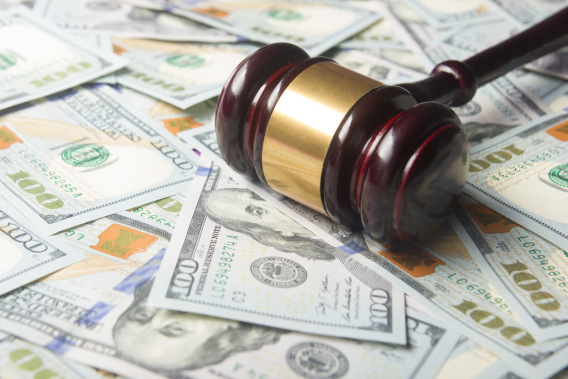J&J Must Stop Claiming Plaintiff Support of $8.9B Talc Settlement

A federal bankruptcy judge ordered a lawyer for Johnson & Johnson to stop making unsubstantiated claims about support for an $8.9 billion settlement for talc victims without being able to back them up.
The order came during a multiday court hearing in late June in Trenton, New Jersey. Plaintiffs’ attorneys investigated Johnson & Johnson’s public statements that claimed the company had “secured commitments from over 60,000 current claimants” in support of the settlement.
Many plaintiffs claim Johnson’s Baby Powder and other products that contained toxic asbestos in their talcum powder caused ovarian cancer and mesothelioma.
Jim Murdica, a lawyer for Johnson & Johnson and lead negotiator on the settlement, told the court there are many law firms that support the deal, but would not name any when asked, according to reporting by Reuters news agency.
U.S. Bankruptcy Judge Michael Kaplan, who is overseeing the proceedings, ordered Murdica to stop making certain claims about the support for the settlement without proof to support them.
“J&J, as one of the largest, most well-funded companies in the world, should not be permitted to escape the tort system for claims involving their asbestos-containing talc products,” Jim Kramer, shareholder at Simmons Hanly Conroy, told The Mesothelioma Center at Asbestos.com. “We look forward to a ruling allowing victims to exercise their constitutional right to have a jury award damages for their cancers.”
Plaintiffs’ Lawyers Divided on Settlement
Moshe Maimon, a lawyer for cancer victims who oppose the $8.9 billion settlement, told Reuters that four law firms represent most of the claimants counted by Johnson & Johnson, and that “none of those firms’ clients have yet agreed to support the deal.”
Another lawyer, Mikal Watts, supports the deal and would recommend it to his 17,000 clients, but said his clients must make up their own minds. Watts does not agree with the company’s statements about “secured commitments.”
“I think the PR department didn’t consult with legal,” Watts told Reuters. “It’s sloppy.”
Johnson & Johnson attempted to use its subsidiary, LTL Management, to resolve all current and future cases related to talc products. LTL’s first bankruptcy attempt was dismissed in January after a U.S. appeals court found that it was not in enough financial distress for bankruptcy proceedings. LTL quickly filed for a second bankruptcy, arguing that it had garnered support from more plaintiffs. The opposition disagrees.
Calls for a bankruptcy dismissal have been sounded by cancer victim attorneys as well as the U.S. Justice Department’s bankruptcy watchdog, accusing LTL of abusing U.S. bankruptcy law, according to Reuters.
Relationship of Talc, Asbestos & Johnson’s Baby Powder
Johnson & Johnson made baby powder with crushed talc. The soft mineral can also be found with asbestos in the earth. That raises concerns that talc products could be contaminated with toxic asbestos.
Court documents in other proceedings revealed that Johnson & Johnson knew about asbestos in its talc products as far back as the 1950s. Company testing revealed asbestos in its products, which it worked to cover up and did not report.
In 2018, the company was paying out multimillion-dollar verdicts from lawsuits over asbestos exposure from its contaminated talcum powder. Retailers quickly pulled Johnson & Johnson’s talc-based baby powder from shelves in 2019 after the U.S. Food and Drug Administration found asbestos in one of the containers.
The container was part of a 33,000-bottle batch that was voluntarily recalled by the company in October 2019. During the investigation, 43 samples were sent to the FDA and nine of those samples were contaminated with asbestos.
A year later, in 2020, Johnson & Johnson announced it would end sales of its talc-based baby powder in the U.S. and Canada but sell it in other parts of the world. It now sells cornstarch-based baby powder in the U.S.
Johnson & Johnson has always publicly denied its products are dangerous.